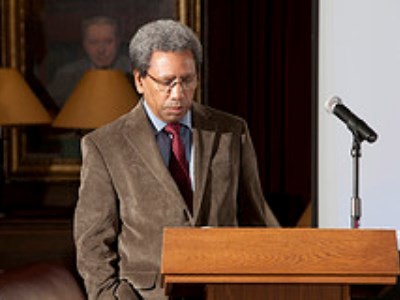 Forrester A. Lee, associate dean for multicultural affairs at the Yale School of Medicine, says a turnaround has to be initiated at the top.
Forrester A. Lee, associate dean for multicultural affairs at the Yale School of Medicine, says a turnaround has to be initiated at the top.The number of African-American men who applied to medical school last year is less than the number who applied in 1978 — a “discouraging trend” spawned by factors that range from substandard education and stereotypes to the lack of role models and the high cost of medical school.
Such are some of the key points raised in “Altering the Course: Black Males in Medicine,” a new report released Monday by the Association of American Medical Colleges.
The report — which found that only 1,337 Black men applied to medical school in 2014, less than the 1,410 who applied in 1978 — calls on institutions of higher education to be more proactive about recruiting a diverse class of future physicians in order to serve an increasingly diverse population.
“Unless somebody comes to that [admissions] committee at the level of the institutional leader and says, ‘You know what? I want to see a good, diverse group that you bring into this class. I want it to be diverse across all levels: ethnically, socioeconomic[ally]’ … they’re not going to do it,” said Forrester A. Lee, a professor of medicine who specializes in cardiology and associate dean for multicultural affairs at the Yale School of Medicine.
The report says that the lack of Black men in medicine poses a significant challenge to the diversity of the future physician workforce — and that lack of diversity among America’s doctors has ramifications for the poor.
“Increased physician diversity is often associated with greater access to care for patients with low incomes, racial and ethnic minorities, non–English-speaking patients, and individuals with Medicaid,” the report states.
However, action to reverse the trend must begin long before students become pre–med majors, Black leaders in the medical profession say.
“Efforts to reverse the downward trend in the numbers of African-American men enrolled in medical school must start with early in childhood,” said Dr. Lawrence Sanders Jr., president of the National Medical Association.
Doctors interviewed for the report identified the disproportionate number of young Black men in underperforming K-12 public schools as a key factor that prevents many from entering medical school.
“Kids of color are more likely to be in low-performing schools that are underresourced — you have issues of physical infrastructure crumbling, outdated textbooks, teachers not credentialed to teach in the subjects that they’re teaching,” observed Brian Smedley, co-founder and executive director of the National Collaborative for Health Equity.
“All of these problems compound, and I suspect that they have a disproportionate impact on males of color, particularly Black boys of color,” Smedley said.
K-12 educational disparities not withstanding, there are other factors that make the path to becoming a medical doctor more difficult for Black men to traverse.
One of the biggest deterrents is the debt associated with going to medical school. For instance, whereas 31.5 percent of all 2014 medical school graduates incurred a total education debt of more than $200,000, among Black male medical school graduates, the figure stood at 41.9 percent.
“The high cost of higher education … means not only [for] medical school or dental school or other health profession schools, but for college preceding that,” said Louis Sullivan, former U.S. Health and Human Services secretary under George H. W. Bush and founding dean and president emeritus of the Morehouse School of Medicine.
“And that’s important because such a high percentage of minority students come from … low-income families, so the financial barriers that are experienced by students of color are, on average, much more severe than those faced by White students.
“And coupled with that are inadequate financial aid programs for students, in college and in the health professions,” Sullivan said. “I’m referring to the reality that there are relatively few scholarships as compared to the situation prior to the mid-’70s.”
Other doctors spoke of the role that stereotypes and bias can play in discouraging young Black male students to pursue careers in medicine — and of the need to persist in spite of it all.
The report contains a series of recommendations to increase the number of Black men who apply to medical school. Those recommendations include using more holistic admissions policies at the college level; bringing in physicians from the community to serve as faculty to help increase the presence of Black males on campus; working with minority-serving institutions and improving advising in high school in college.
Jamaal Abdul-Alim can be reached at [email protected]. Or follow him on Twitter @dcwriter360.


















